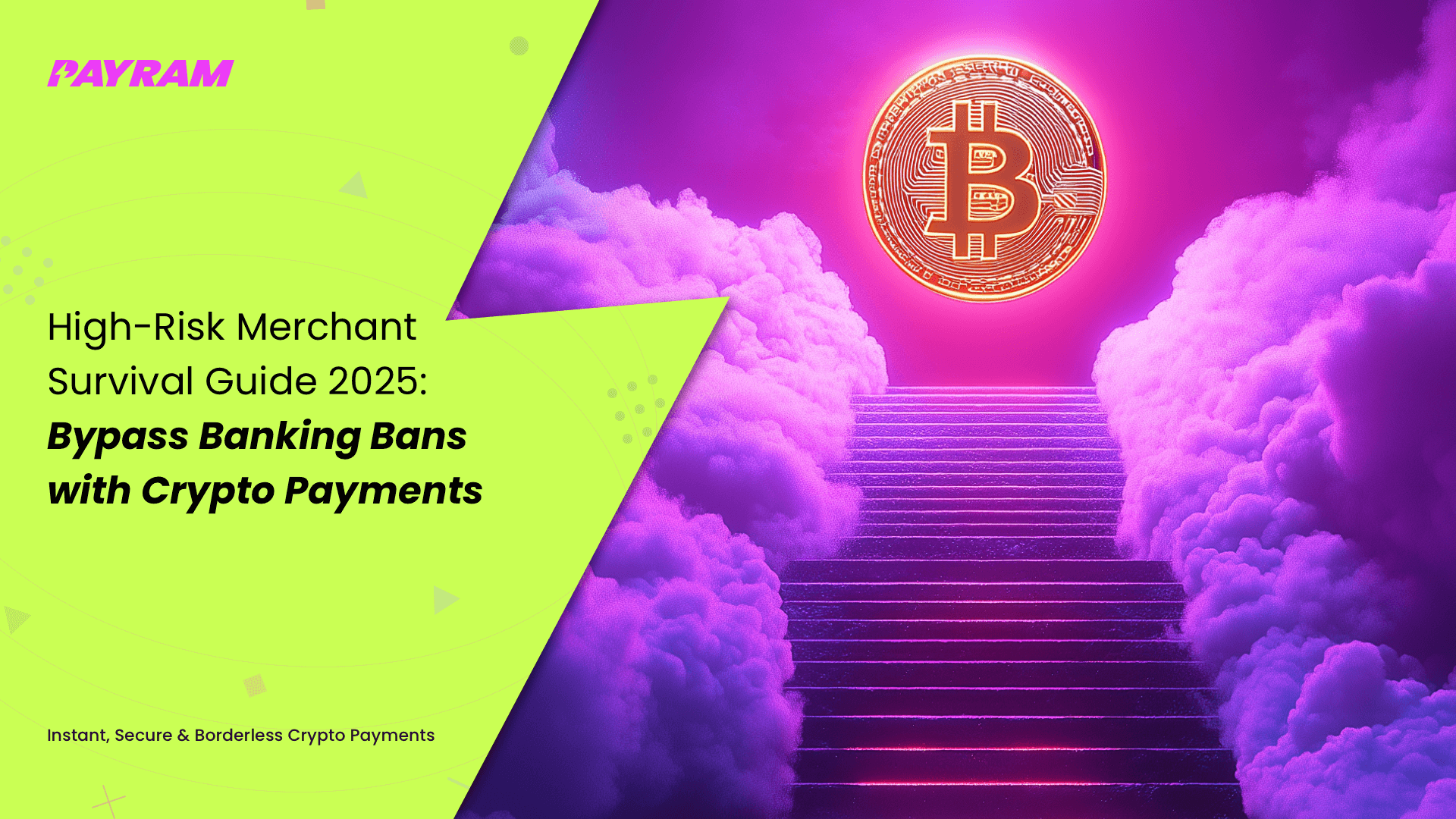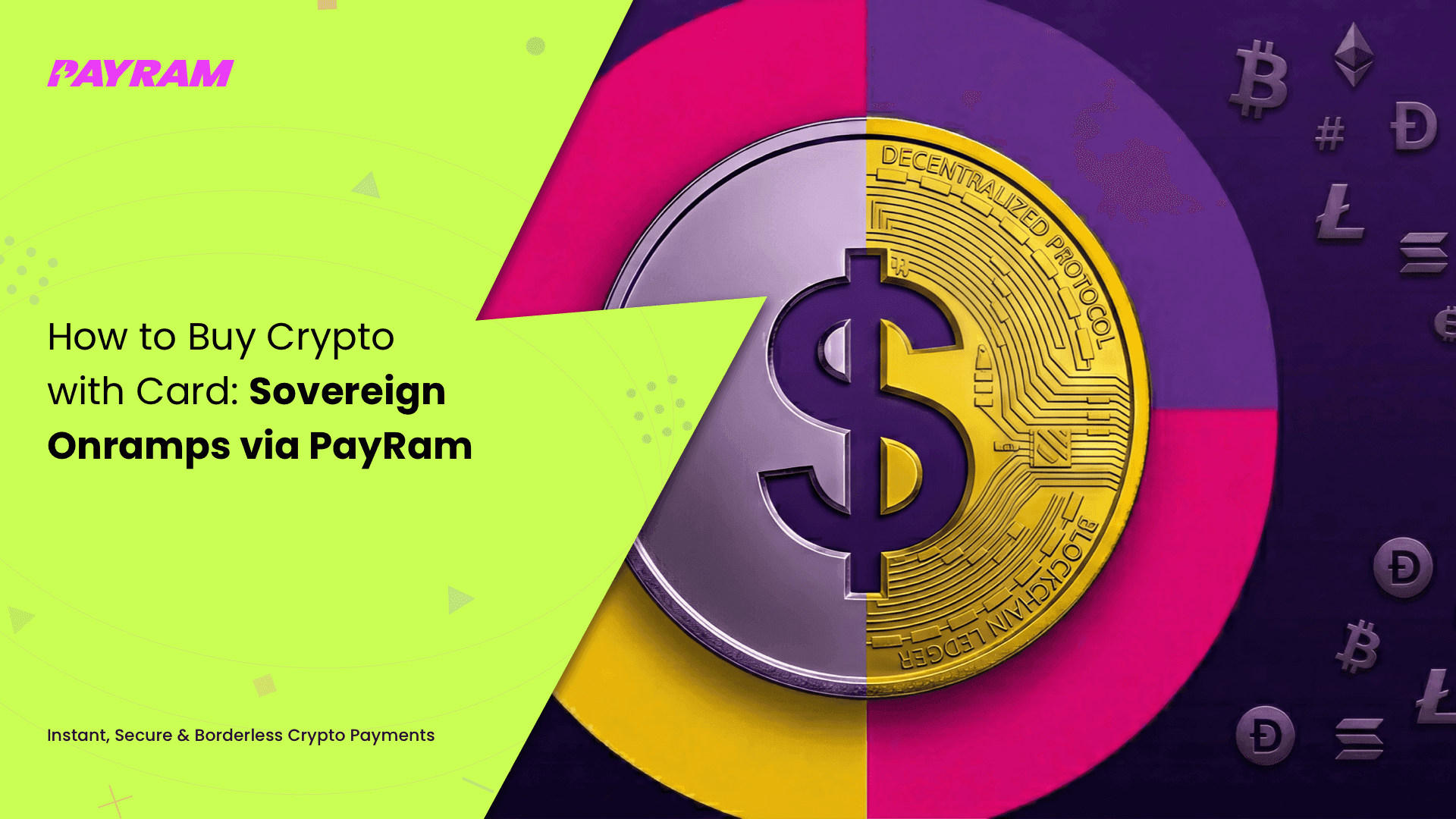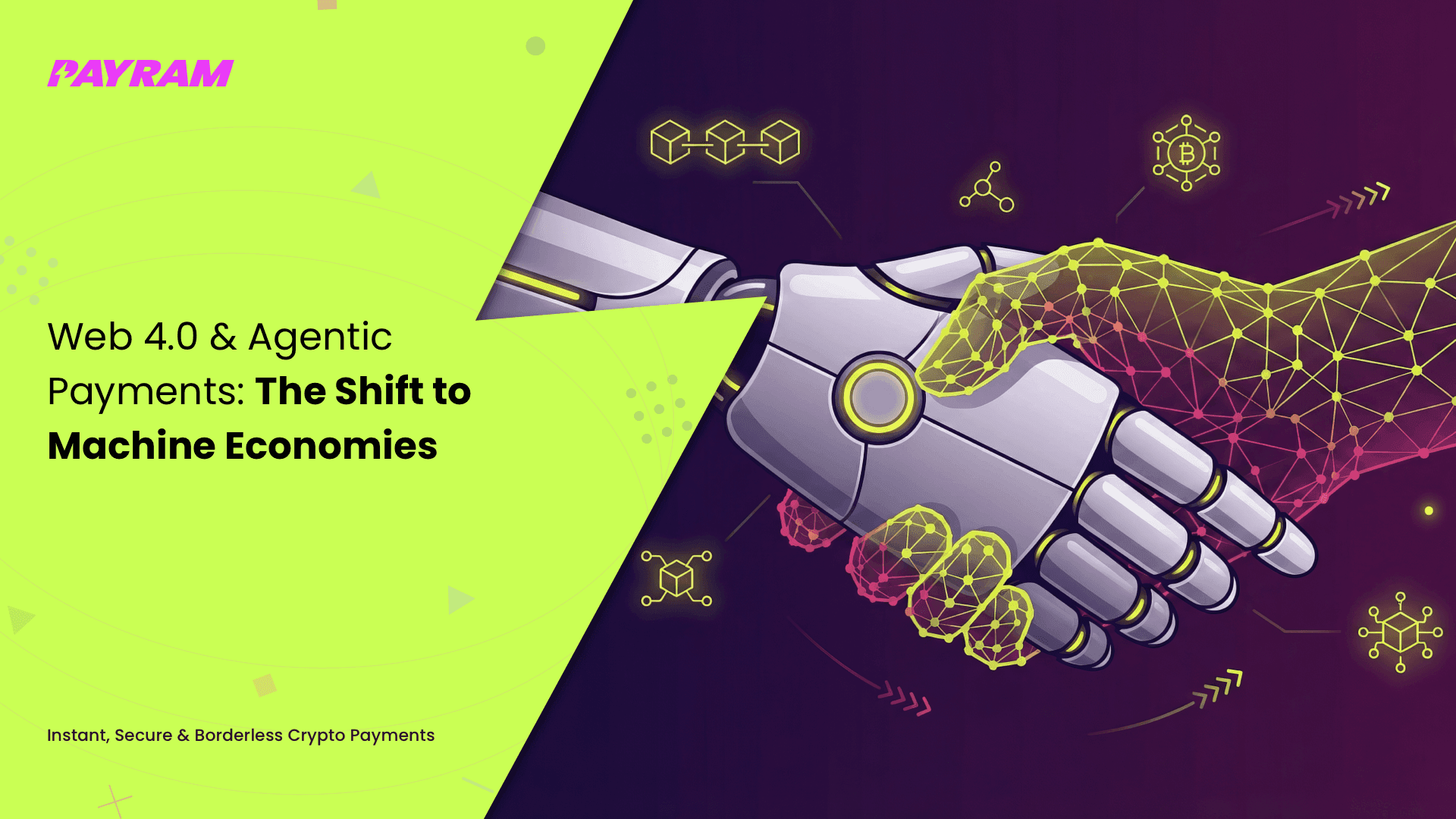
April 07, 2025
High-Risk Merchant Survival Guide 2025: Bypass Banking Bans with Crypto Payments
Alice and Bob had finally launched their dream business—an online iGaming platform that was gaining traction fast. They had everything set up: a slick website, a growing customer base, and seamless payment processing through Stripe. But then, out of nowhere, they received an email that turned their excitement into panic:
"We regret to inform you that your account has been terminated due to elevated risk associated with your business model."
With their funds frozen and no way to process payments, Alice and Bob scrambled to find a solution. They soon realized they weren’t alone—thousands of merchants operating in high-risk industries face similar challenges every day.
Not all businesses enjoy smooth sailing when it comes to accepting payments. Some are categorized as High-Risk Merchants—a label that comes with challenges like higher processing fees, stricter compliance requirements, and increased scrutiny from banks.
If you’re running a business in this category or considering starting one, here’s what you need to know about high-risk merchants, their challenges, and how to navigate the complexities of securing a payment processor.
Who is a High-Risk Merchant?
Financial institutions assess risk based on several factors. A business is deemed high-risk due to:
- Industry Type – Some industries experience frequent chargebacks, fraud, or regulatory restrictions.
- Business Model – Subscription-based models or businesses with high-ticket transactions tend to face more payment disputes.
- Credit & Financial History – Poor credit scores or a history of chargeback issues raise red flags for payment providers.
Which Industries are considered High-Risk?
- Casinos
- iGaming
- Cryptocurrency
- Adult entertainment
- E-cigarettes and Vaping
- Certain marketplaces and e-commerce platforms
- Financial services
- Certain pharmaceuticals and nutrition supplements
- Travel and tourism
- CBD
For businesses in these industries, securing a payment processor isn’t as simple as opening a regular merchant account.
Why Mainstream Payment Processors Ban High-Risk Merchants
Not all payment processors welcome high-risk businesses. Mainstream platforms like Stripe, PayPal, and Square frequently ban or restrict merchants in high-risk industries due to chargeback risks, compliance issues, and financial concerns.
- High Chargeback Rates: Frequent disputes cost payment processors money.
- Regulatory Restrictions: Compliance complexities make processors risk-averse.
- Business Model Risks: Subscription services and digital goods face higher refund rates.
- Financial Instability: Poor credit history or negative balances raise concerns.
For high-risk merchants like Alice and Bob, getting banned meant lost revenue and operational disruptions.
Comparison between Low-Risk and High-Risk Merchants
Chargeback Rates
- Low-Risk: Minimal chargebacks.
- High-Risk: Frequent disputes exceeding industry thresholds.
Processing Fees
- Low-Risk: Negligible to low fees.
- High-Risk: Elevated fees due to perceived risk.
Industry Restrictions
- Low-Risk: Generally unrestricted.
- High-Risk: Subject to heavy regulations and sudden bans.
Rolling Reserves
- Low-Risk: Rarely required; funds accessible immediately.
- High-Risk: Common practice to mitigate risk (funds held).
Contract Terms
- Low-Risk: Flexible, short-term agreements.
- High-Risk: Strict terms with long commitments.
Payment Processor Options
- Low-Risk: Wide range of mainstream providers.
- High-Risk: Limited to specialized processors.
Alternative Solutions for High-Risk Merchants
- High-Risk Merchant Account Providers – Specialized processors cater to high-risk industries.
- Fraud Prevention Measures – Reducing disputes can improve credibility with payment processors.
- Crypto Payment Gateways – Accepting cryptocurrencies bypasses traditional banking restrictions for high-risk businesses.
How to secure your High-Risk Merchant Account
High-risk merchants need to approach account providers strategically. Here’s how:
- Choose the Right Payment Processor – Look for a provider with experience in high-risk industries.
- Implement Strong Fraud Prevention – Reduce chargebacks through verification tools and clear refund policies.
- Be Transparent with Financial History – Provide accurate financial records to assure processors of your credibility.
- Build a Reserve Fund – Prepare for rolling reserves by maintaining cash flow flexibility.
What to Look for in a High-Risk Merchant Account Provider
Industry Expertise: Familiarity with high-risk industries reduces friction
Competitive Fees: Some providers offer better rates for risk-tolerant businesses
Chargeback Protection Tools: Helps lower disputes and improve transaction success
Multi-Currency Support: Essential for global businesses needing international customer payment options
Flexible Contract Terms: Avoids long-term lock-ins and excessive penalties
Choosing the right payment processor is crucial for maintaining seamless business operations while avoiding unnecessary costs.
How Crypto Payment Gateways Solve High-Risk Merchant Problems
Traditional banking limitations have led many high-risk merchants to explore crypto payment gateways as an alternative solution. Cryptocurrency transactions offer several advantages over conventional payment processing, making them an attractive choice for businesses struggling with financial restrictions. Learn about how crypto payment gateways are revolutionizing iGaming and other high-risk sectors.
Why Crypto Payments Work for High-Risk Merchants?
- No Chargebacks: Irreversible transactions eliminate disputes and fraud-related losses.
- Lower Transaction Fees: Significantly cheaper than credit card processing (0.5% vs. 3-5%).
- Global Transactions: Accept payments worldwide without geographic restrictions.
- No Banking Intermediaries: Bypass traditional banks that reject high-risk accounts.
- Instant Settlement: Funds clear in minutes, improving cash flow.

After facing constant rejections and high fees with traditional payment processors, Alice and Bob decided to integrate a crypto payment gateway into their gaming platform.
How it helped them:
- No More Chargebacks – Since crypto payments are irreversible, they could eliminate fraudulent disputes.
- Lower Processing Costs – They saved money on payment processing fees.
- Global Reach – Players from different countries could pay seamlessly.
Popular crypto payment processors like PayRam, BTCPay, and CoinGate make it easy for high-risk merchants to accept Bitcoin, Ethereum, and other coins or stablecoins like USDT.
PayRam: The Best Payment Gateway Alternative for High-Risk Merchants
For high-risk merchants struggling with payment restrictions, PayRam emerges as the ideal option offering autonomy, seamless crypto payments, and compliance.
- Self-Hosted Solution: Maintain full control over payment workflows to ensure business continuity.
- Multi-Currency Support: Accept BTC, ETH, TRX, SOL, USDT for global flexibility.
- Transaction Ledger: Simplified accounting with profit/loss statements and audit trails.
- User-Friendly Interface: Familiar checkout experience for customers (no crypto expertise needed).
- Regulatory Compliance: Tools to align with evolving crypto regulations and minimize legal risks.
If you’re operating in a high-risk industry and struggling with payment restrictions like Casinos, iGaming, eCommerce, Marketplace, or Charities. PayRam offers a secure, cost-effective, and independent solution. Mastering self-hosted crypto payment processing can be a game-changer.

Final Thoughts
Being a high-risk merchant doesn’t mean your business has to struggle. With the right approach—choosing the best payment processor, implementing fraud prevention measures, and exploring crypto payments—you can operate smoothly while minimizing financial risks.
If you’re in a high-risk industry, have you considered accepting crypto payments? Contact PayRam for a demo today!




